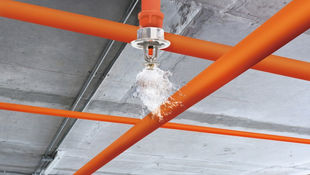top of page
Insights & Updates


Boost Workplace Safety with Industrial Piping Solutions
Industrial workplaces demand rigorous safety standards to protect workers, equipment, and infrastructure. One critical yet often overlooked aspect of workplace safety is the quality and reliability of industrial piping systems. These systems transport essential fluids and gases, and any failure can lead to hazardous incidents, costly downtime, or environmental damage. Investing in certified, high-quality piping solutions is a strategic move to enhance safety and operational e


Edoburg Featured in the 2025 Global Piping Systems Market Report
Edoburg has earned recognition in the piping systems market, as highlighted in the 2025 Global Strategic Business Report, marking a significant achievement for this multi-catalogue supplier.


ABS DWV Pipes & Fittings: CSA and ASTM Compliance for North America
Edoburg supplies CSA B181.1 & ASTM D2661 ABS DWV pipes & fittings with private labelling, packaging flexibility, and export-ready documentation.


PPH & PVDF Pipes: The Hidden Backbone of Chemical Process Industries
PPH & PVDF pipes ensure safety in chemical plants, wastewater & ultrapure systems. Explore ISO, DIN & ASTM standards with Edoburg’s export-ready supply.


Sustainable Infrastructure: FRP & Composite Gratings vs Traditional Steel
FRP & composite gratings deliver strength, fire safety & sustainability. Explore EN 13706, ASTM E84, ANSI/NAAMM standards & Edoburg’s global solutions.


Decoding Global Standards for Manhole Covers & Chambers: EN 124, IS 12592, and AASHTO M306
From EN 124 to AASHTO M306, learn how Edoburg ensures compliance, documentation, and export-ready manhole covers & chambers for global infrastructure.


PVC vs. Rubber Hoses: Which is Better for Your Needs?
Choosing the right hose for your specific needs is crucial for ensuring efficient and cost-effective operations. PVC and rubber hoses are...


How to Choose the Right PVC Hose for Your Industry: A Comprehensive Analysis
Choosing the right PVC hose for your industrial needs can significantly impact efficiency, safety, and cost-effectiveness. With a variety...


The Ultimate Guide to PVC Hoses: Types, Uses, and Benefits
PVC hoses are essential components in many industries due to their versatility, durability, and cost-effectiveness. This comprehensive...


PEX-AL-PEX Pipes: What You Need to Know About Maintenance and Longevity
PEX-AL-PEX pipes, a composite pipe type, combine the flexibility of PEX with the strength of aluminum. They offer excellent durability...


Understanding the Benefits of PEX-AL-PEX Pipes for Hydronic Heating Systems
Hydronic Heating Solutions with PEX-AL-PEX: Efficiency and Reliability Hydronic heating systems are renowned for their efficiency and...


PEX-AL-PEX Pipes vs. Traditional Metal Piping: A Comprehensive Comparison
When choosing the right piping material for your project, the decision between PEX-AL-PEX pipes and traditional metal piping can...


What is PEX-AL-PEX Pipe?
PEX-AL-PEX pipes are a type of multilayer composite pipe that combines the advantages of three different materials: polyethylene (PEX),...


Cost Analysis: Is Investing in CPVC Fire Sprinkler Pipes Worth It?
When it comes to fire safety in buildings, choosing the right fire sprinkler system is crucial. CPVC fire sprinkler pipes have become...


Regulatory Compliance for CPVC Fire Sprinkler Pipes: What You Need to Know
In the world of fire protection, CPVC fire sprinkler pipes play a crucial role in ensuring safety and compliance. These pipes are...


How CPVC Fire Sprinkler Pipes Perform in Extreme Temperatures: A Data-Driven Analysis
In fire protection systems, the performance of CPVC (Chlorinated Polyvinyl Chloride) fire sprinkler pipes in extreme temperatures is...


CPVC vs. Metal Fire Sprinkler Pipes: A Comprehensive Comparison
When it comes to fire safety systems, the choice of piping material can significantly impact the effectiveness and longevity of the fire...


The Benefits of CPVC Fire Sprinkler Pipes: Why They're a Top Choice for Modern Fire Protection
In the realm of modern fire protection, CPVC (Chlorinated Polyvinyl Chloride) fire sprinkler pipes have emerged as a top choice for...


Why Choose CPVC Fire Sprinkler Pipes? A Comprehensive Overview
In the realm of fire protection, CPVC fire sprinkler pipes have emerged as a game-changer, offering a blend of durability,...


Comprehensive Guide to PVC Solar Electrical Conduit: AS/NZS 2053 Standards
When it comes to electrical installations for solar power systems, selecting the right conduit is crucial for ensuring safety and...
bottom of page
